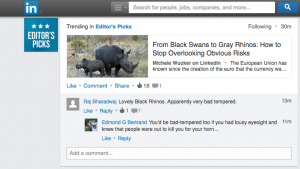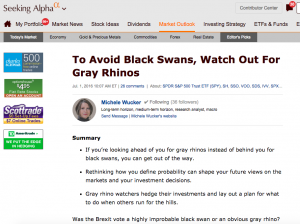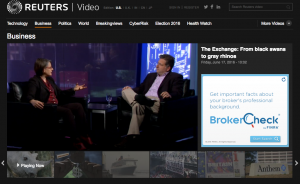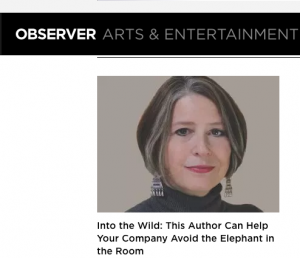The Washington Post published an op-ed by Michele Wucker, “No, the coronavirus pandemic wasn’t an ‘unforeseen problem’,” published on March 17, 2020.
“An obsession with the “unforeseeable” black swan metaphor has promoted a mentality that led us straight into the mess we’re in now: a sense of helplessness in the face of daunting threats and a sucker’s mentality that encourages people to keep throwing good money after bad. And the facile willingness to see crises as black swans has provided policymakers cover for failing to act in the face of clear and present dangers from climate change to health care to economic insecurity. This accountability vacuum has pervaded U.S. policy on financial risk and on the pandemic,” she wrote, calling for readers to use the coronavirus crisis as a catalyst for adopting a more pro-active response to the obvious risks we tend to ignore. “Let’s trade the black swan for the gray rhino: a mind-set that holds ourselves and our government accountable for heeding warnings and acting when we still have a chance to change the course of events for the better instead of waiting for a crisis to act,” she wrote. Read the full article HERE.
Ben Zimmer of The Wall Street Journal quoted the Washington Post piece in an article published March 19, 2020 online and in print in the Weekend edition: ‘Black Swan’: A Rare Disaster, Not as Rare as Once Believed [paywall], noting her challenge to the black swan trope –for unknowable, unforeseeable events– which became popular during the last financial crisis.




